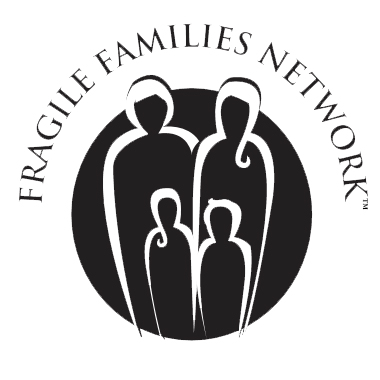Multigenerational Learning and the Wisdom of Older Relatives

Grandfamilies, where grandparents or other relatives take on the primary caregiving role for children, are a growing demographic in many societies. These family structures often create rich, multigenerational environments that provide children with opportunities to learn from the wisdom and experiences of older relatives. This dynamic not only enriches the lives of the children but also strengthens family bonds and fosters a deeper appreciation of heritage and tradition. Understanding the benefits of these multigenerational environments is essential for recognizing the value of grandfamilies and supporting them effectively.
The Unique Dynamics of Grandfamilies
Grandfamilies are formed for various reasons, including the death, disability, or absence of the parents due to various circumstances such as substance abuse or incarceration. Despite the challenges that may bring these families together, the resulting multigenerational household offers several unique advantages:
- Intergenerational Bonding:
- Strengthening Family Ties: Living with grandparents or older relatives allows children to develop close bonds with their elders. These relationships can provide a sense of security, belonging, and continuity.
- Role Models: Grandparents often serve as strong role models, teaching children values, ethics, and life skills through their actions and stories.
- Cultural and Historical Continuity:
- Passing Down Traditions: Grandparents are often the keepers of family traditions, cultural practices, and stories. By sharing these with their grandchildren, they help preserve cultural heritage and instill a sense of identity.
- Family History: Learning about family history from grandparents can give children a sense of where they come from and help them understand their place in the broader family narrative.
- Wisdom and Life Lessons:
- Life Experience: Grandparents bring a wealth of life experience and wisdom to the table. They can offer valuable insights and advice based on their own experiences, helping children navigate challenges and make informed decisions.
- Resilience and Coping Skills: Older relatives often have faced and overcome significant life challenges. Their stories of resilience can inspire and teach children important coping skills.
The Benefits of Multigenerational Learning
The multigenerational environment of grandfamilies provides a unique setting for learning and personal growth. Key benefits include:
- Enhanced Emotional Development:
- Emotional Support: The presence of grandparents can provide additional layers of emotional support for children. This can be particularly important during times of stress or crisis.
- Empathy and Compassion: Interacting with older relatives can help children develop empathy and compassion as they learn to understand and appreciate different perspectives and experiences.
- Educational Advantages:
- Storytelling and Oral History: Grandparents often use storytelling as a way to teach lessons and share knowledge. These oral histories can be a powerful educational tool, enriching children’s understanding of the world.
- Mentorship and Guidance: Grandparents can act as mentors, providing guidance and support in academic and personal endeavors. Their involvement can positively impact children’s educational outcomes.
- Social Skills and Interpersonal Relationships:
- Interpersonal Skills: Living in a multigenerational household can help children develop strong interpersonal skills, as they learn to communicate and interact with family members of different ages.
- Conflict Resolution: Observing and participating in family dynamics can teach children important conflict resolution skills, as they see how older relatives handle disagreements and find solutions.
Challenges and Support for Grandfamilies
While grandfamilies offer many benefits, they also face unique challenges that require support and understanding:
- Financial Strain:
- Limited Income: Grandparents living on fixed incomes may face financial difficulties in providing for their grandchildren. Access to financial assistance and resources can alleviate some of this strain.
- Healthcare Costs: The added responsibility of caring for children can increase healthcare costs for older caregivers, necessitating support for medical expenses.
- Physical and Emotional Health:
- Health Issues: Older caregivers may have their own health issues to manage while caring for young children. Access to healthcare services and respite care is crucial.
- Stress and Burnout: The demands of caregiving can lead to stress and burnout. Support groups and counseling services can provide emotional support and relief.
- Legal and Custodial Complications:
- Legal Guardianship: Navigating the legal system to obtain guardianship or custody can be complex and challenging. Legal aid and advocacy services can assist grandfamilies in securing the necessary legal arrangements.
- Access to Services: Ensuring that grandfamilies have access to educational, social, and healthcare services requires coordinated support from community organizations and government agencies.
Supporting Grandfamilies for Success
To maximize the benefits of grandfamilies and address their challenges, a comprehensive approach to support is necessary:
- Community and Social Support:
- Support Networks: Establishing support networks and community programs can provide grandfamilies with the resources and assistance they need. This includes support groups, educational workshops, and social activities.
- Intergenerational Programs: Programs that facilitate intergenerational activities and learning can strengthen family bonds and enhance the educational and emotional development of children.
- Policy and Advocacy:
- Policy Changes: Advocating for policies that recognize and support grandfamilies, such as financial assistance, access to healthcare, and educational support, is essential.
- Public Awareness: Raising awareness about the unique strengths and challenges of grandfamilies can foster greater understanding and support within the community.
- Educational and Healthcare Services:
- Accessible Services: Ensuring that grandfamilies have access to affordable healthcare, educational resources, and counseling services is crucial for their well-being.
- Tailored Programs: Developing programs specifically tailored to the needs of grandfamilies can enhance their effectiveness and provide targeted support.
Grandfamilies create rich, multigenerational environments where children can learn from the wisdom and experiences of older relatives. These family structures offer numerous benefits, including enhanced emotional development, educational advantages, and strong interpersonal skills. However, to fully support grandfamilies and address their unique challenges, a comprehensive approach involving community support, policy advocacy, and accessible services is necessary. By recognizing and fostering the strengths of grandfamilies, we can ensure that both children and caregivers thrive in these enriching environments.
©2024 Fragile Families NETWORK







